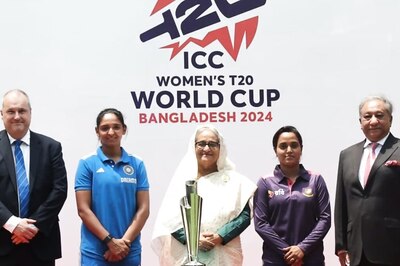
views
There are millions of young Indians, from Guntur and Ludhiana to Roorkee and Asansol, for whom the opportunity to study abroad is the best way to gain the relevant skills, credentials, and networks needed to succeed. However, it is often difficult for students to determine which programme or college to apply to. Many choose arbitrarily or based on dubious rankings. Few students and parents realise that top-ranked universities may not be the right fit for them.
Deciding based on well-meaning but largely unqualified advice from family, friends or batchmates may not offer students the maximum Return on Investment (RoI) on their education. It’s the same for making a choice based on piecemeal guidance from counsellors, many of whom choose commissions and profits over the student’s strength and future goals. Besides, counsellors who charge lakhs for their services, are out of reach for most deserving students, especially from smaller towns and cities.
Also read| Brain Teaser: Can You Solve This Tricky Question From Oxford University’s Admissions Test?
What if students chose an AI-powered, data-driven digital platform to help them make this decision instead? Leveraging the power of data science to shortlist programs and universities uniquely suited to their profiles, professional and personal goals and financial circumstances would empower students to make better decisions about their future. Think of it as algorithmic matchmaking, connecting students directly with colleges of their choice.
Eliminating “middlemen”, replacing opinions with facts and data. Instead of talking to a “counsellor” who may have never earned a degree or may have never even been to that country, aspirants can talk to those students who are currently studying in the “matched-college” or recent alumni of that college. This could be far more reliable and valuable in refining the college choices that are uniquely suitable for the prospective student.
Read| 3,000 Indians to be Offered Visas, Jobs Under UK-India Young Professionals Scheme
As students shortlist preferred universities, they could also learn which are “bank fundable,” saving them the heartbreak of abandoning their applications simply because they cannot fund their degrees. In this process, both students and matched-universities can feel more certain about their choices of each other and go through the entire process in a stress-free and efficient manner.
A digital platform that helps the students take full control of their higher education journey is the way of the future. Such a student-centric ecosystem that can power rational college selection and efficient financing can significantly alter the access to higher education for students from lower and middle income backgrounds and to that extent, contribute to social equality.
— Written by Aayush Nagpal and Sasidhar Sista, Members of the Founding Team, GradRight
Read all the Latest Education News here

















Comments
0 comment